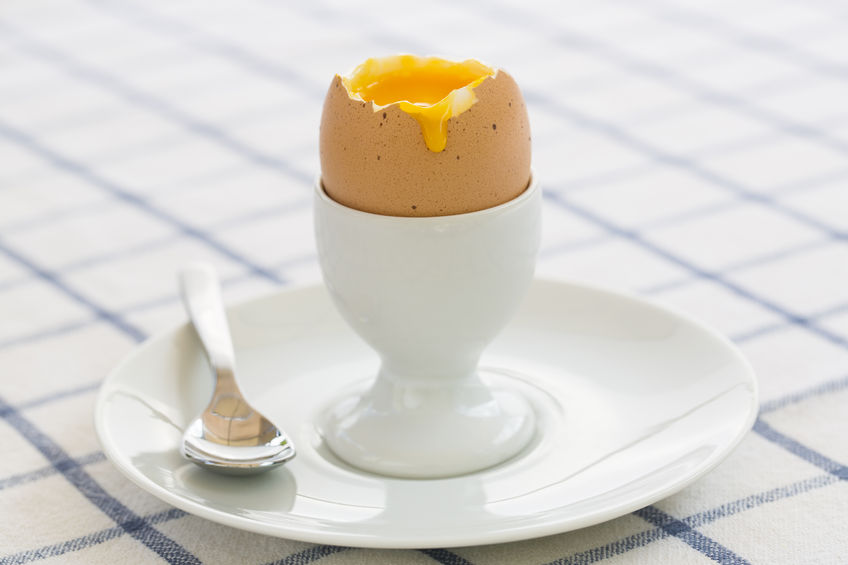
Pregnant women and the elderly can now safely eat runny or even raw eggs under new advice issued by the government’s food safety watchdog almost 30 years after the UK salmonella crisis.
The Food Standards Agency (FSA) has changed its advice on eggs, confirming that eggs with the British Lion logo on them are safe to be eaten runny, and raw.
Since the 1980s salmonella scandal, vulnerable groups have been advised to hard-boil their eggs for fear of food poisoning.
These groups can now enjoy the nutritional benefits of eggs, without having to fully cook them.
The new advice follows a year-long risk assessment by the Advisory Committee on the Microbiological Safety of Food and is the result of extensive food safety measures introduced within the British Lion Code of Practice since its launch in 1998.
'Real success story'
Andrew Joret, chairman of the British Egg Industry Council, which runs the British Lion scheme, welcomed the new advice. He said it was a "real success story" for the UK egg industry.
“Our producers have maintained the highest standards for two decades to ensure the superior safety of British Lion eggs and we are delighted that FSA has now confirmed that these eggs are safe enough for even vulnerable groups to eat runny or even raw,” Mr Joret said.
“We know that the previous advice has deterred many women from eating eggs when pregnant, and from giving them to their babies, as well as denying older people the pleasure and nutritional benefits of a ‘dippy egg’ and home-made mousses and mayonnaise.
“The advice is particularly good news for these groups and will also enable care homes to put many traditional egg dishes back on their menus.”
'Improving hygiene on farms'
Today's announcement follows two decades of vaccination programmes and improved hygiene in farms which has virtually rid salmonella from British eggs.
Heather Hancock, Chairman of the Food Standards Agency, said: “The FSA has thoroughly reviewed the scientific evidence about the safety of these eggs, and we're confident that we can now change our advice to consumers.
“The major reduction in the risk of salmonella in Lion eggs is testament to the work carried out by egg producers. The measures they've taken, from vaccination of hens through to improving hygiene on farms and better transportation, have dramatically reduced salmonella levels in UK hens.”
Dr Juliet Gray, registered nutritionist, said: “The new advice is very welcome news. Eggs are highly nutritious, containing many key nutrients including high quality protein, vitamin D, selenium, iodine, choline and omega-3 fatty acids.
“These nutrients are particularly important for many vulnerable groups, including pregnant women, babies and elderly people and several of them are not found in many other foods.”
Public confidence
The NFU has welcomed the updated advice. The union said it will be "actively promoting" this news to promote awareness among consumers.
This assurance to the public, the NFU said, is crucial for long-term public confidence in the safety of British eggs.
NFU poultry board chairman Duncan Priestner said: “This is great news for the industry and has been many years in the making. Producers' commitment to controlling salmonella and compliance with the National Control Programme for Salmonella has paid off.
“We give great credit to the BEIC for their persistence and working with the health and food safety authorities and to the standards in the Lion Scheme. All people of all ages can now enjoy eating eggs however they choose to cook them.”
